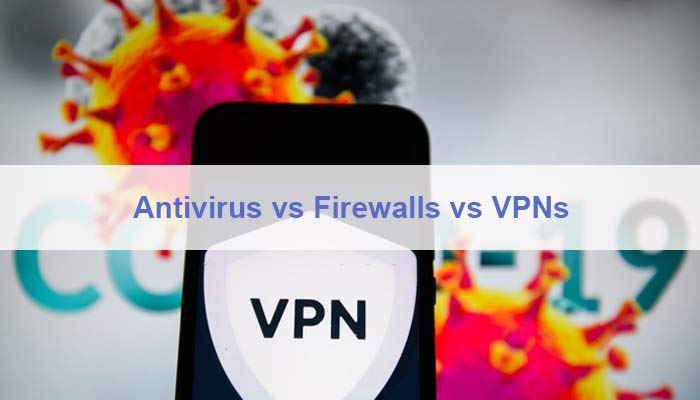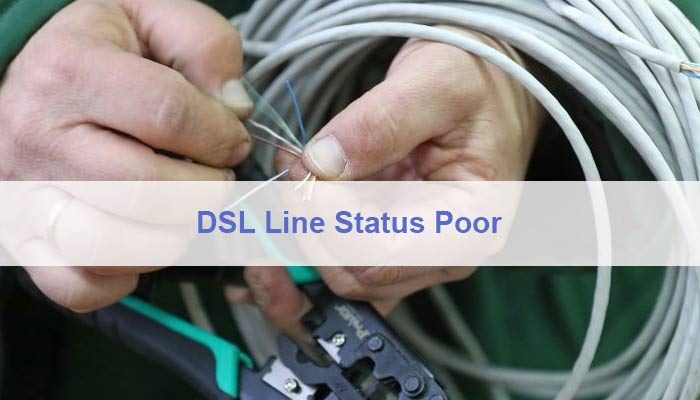The three most important security tools we’ve all heard about are firewalls, antiviruses, and VPNs.
While these names are often thrown around when discussing digital security, not many can distinguish them from one another. Their purpose might be similar, but they’re different in the way they operate.
- They use different technology to protect everyone’s devices.
In this article, we will do a bit more in-depth about each of these three pillars of digital security, and explain their similarities and differences between antivirus vs firewalls vs VPNs.
What Is an Antivirus?
Antivirus is a type of security software that enables users to detect and remove any threats – worms, viruses, spyware, and other computer malware types. Malware usually hides in files, USB drives, folders, and other data.
- Antivirus works by performing frequent or occasional scans.
Once a threat has been identified, antivirus quarantines the threat and allows the user to choose the next course of action. It is also important to regularly update your antivirus, so it would be able to identify newer types of threats.
What Is a VPN?
Unlike antiviruses, who work hard on keeping the computer safe, VPNs do everything in their power to keep the user’s internet connection safe. They encrypt all internet traffic to ensure that the user’s anonymity remains intact.
- While this is an essential tool to keep the user’s privacy and data safe, it is not effective against malware.
VPNs work by disguising the user’s IP address and assigning them with a new one. VPNs are especially useful against preventing exploits such as man-in-the-middle attacks.
What Is a Firewall?
A firewall is one of the most underestimated security tools out there. Many don’t even know how to use it because it often comes pre-installed on every PC.
- A firewall is like a fence that controls what can go through your computer and what can’t.
Most users have probably noticed that, when they want to install a new program, a window pops up asking to approve the installation. That is exactly how firewalls work – they filter potentially dangerous files to ensure that your computer remains safe.
Differences Between Firewalls and Antiviruses
- Firewalls protect the computer by blocking access to certain websites. Users can manually configure how their digital device communicates with the internet. Sometimes, firewalls will automatically block potentially harmful websites.
- Antivirus has to scan each file separately to ensure that it’s not infected. However, if a user downloads an infected file, the antivirus will notify them immediately,
- Firewalls, on the other hand, cannot detect or remove any malware that has been opened by the user.
Differences Between VPNs and Antiviruses
- VPNs act as a layer of security between the internet and the user. It keeps all online activities, as well as the user’s IP address private.
- Antivirus operates differently, on the other hand. It protects your devices by performing dedicated file scans. Then, it either removes or quarantines the threat, once it’s been discovered.
- VPNs cannot detect malware on the user’s computer. It can only encrypt user traffic. However, if the user opens an infected file, VPN won’t be able to remove it.
Differences Between Firewalls and VPNs
- VPNs secure the user’s internet connection, ensuring that no one can track their online activities. VPNs do not secure the actual computer or mobile device, though.
- A firewall enables the user to set up how their computer communicates with the internet. The user configures their own rules that will prevent malware from penetrating your device.
- VPNs don’t allow users to create custom security rules. While some VPNs come with a killswitch option that enables users to terminate the connection instantly, this feature only prevents hackers from seeing their real IP address.
- VPNs allow users to bypass geo-restrictions to watch blocked content. On the contrary, firewalls can’t do this.
Which One to Choose?
The answer is simple – use them all. Reliable VPN, strong antivirus, and a properly configured firewall are the best options for your digital security and privacy.









